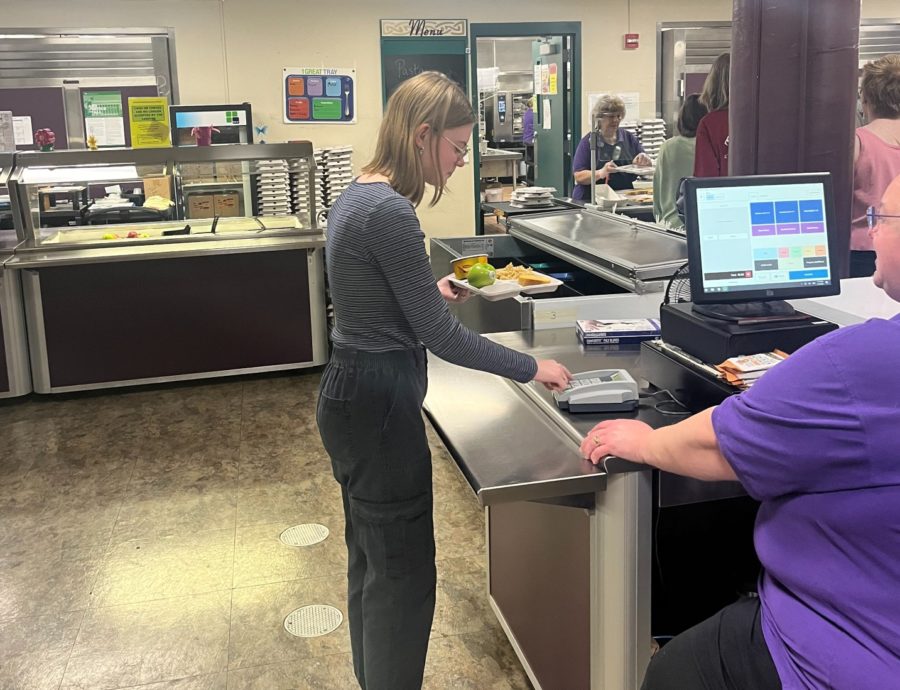The return of free lunches for 23-24 school year
Junior Alayna Wannarka gets lunch in the cafeteria.
April 21, 2023
Immediately following the pandemic, a federal bill was signed to allow students to receive free breakfast and lunch during school hours. In June 2022, the free lunch program for all students ended, leaving some kids without breakfast and lunch during school days. Minnesota State legislators worked to pass a bill that would provide free breakfast and lunch for students using state money. On Friday, March 17, a bill allocating over 800 million dollars towards school lunches and breakfasts was signed into law by Governor Tim Walz. This will allow students kindergarten through twelfth grade to receive free breakfast and lunch provided by the school.
The free lunch program will go into effect, starting in the 23-24 school year. Schools will have to opt into the program to receive funding for breakfast and lunch.
Freshman Gabe Piepho said, “Free lunches could be nice, but the quality of the food may decrease. More students would try to have lunch if it’s free.”
Students who do not often eat school lunches may be more inclined to do so if they knew it was free and their family did not have to worry about how they would pay for their children’s lunch.
Schools providing free lunch and breakfast for students will help reduce food insecurity and malnutrition for students in school. This way students can eat breakfast and lunch five days a week. Due to the restrictions on what food a school can serve, the school lunches provided meet criteria for a healthy diet.
While free school lunch and breakfast sounds like a very positive thing, some people are not in favor of provided school lunches. One of the reasons this may be is for tax reasons. In order to provide free breakfast and lunch for students, taxes may rise to cover the cost.
“There is no such thing as a free lunch,” GOP Sen. Steve Drazkowski, of Mazeppa, said. “The people of Minnesota are paying in this bill over $400 million in taxes to pay for the lunches of kids, the majority of which are already having their lunches paid for by their families now,” Kare 11 report.
Children with dietary restrictions may require different lunches from other students and have to bring a lunch from home. The parents of these children will still be paying in a way for the school lunches their children can not eat.
Allowing all students access to healthy meals can reduce the rate of childhood obesity. Through the use of free lunches, students will have a higher degree of concentration in class, allowing for higher academic achievement.
Cook at Wilson Elementary and OHS Ranae Brenon said, “All students will be offered breakfast and lunch. We have had students say, ‘I haven’t eaten much since Friday’, and it is already lunch time on Monday. No student should have to worry when they will next eat. If we can help, we should.”
This bill provides all Minnesota students with the nutrition necessary to ensure that food insecurity does not hinder academic achievement and helps improve the future for academic development.







